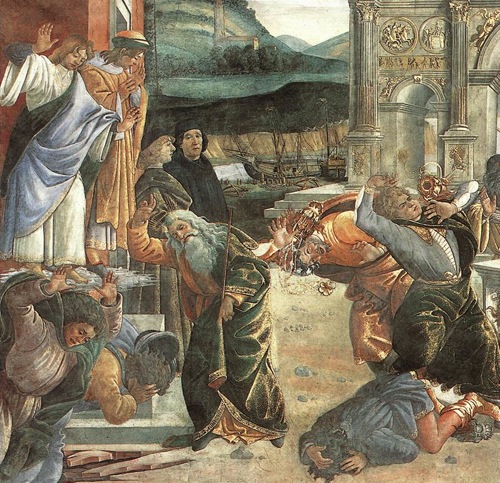
A helpful psychological and political insight emerges from this week’s Torah reading, Korach (Numbers 16:1-18:32): Always be skeptical of someone’s politics when you see that it increases his prestige in the eyes of high-prestige society. Liberté, égalité, vanité.
Pictured above by Botticelli, Korach was an elder from the tribe of Levi who sought to stir a rebellion against the leadership of Moses and Aaron. He gave egalitarian sentiment as his justification, assailing Moses for wrapping himself in prestige and honor when those goods should be shared equally among the people. He protested:
You take too much upon yourselves, for the entire congregation are all holy, and the Lord is in their midst. So why do raise yourselves above the Lord’s assembly?
But Rashi, citing a midrashic tradition, explains that Korach’s motives were really not as he pretended. The truth is, Korach felt that he himself had not received his share of glory in the form of prestigious leadership appointments:
Now what made Korach decide to quarrel with Moses? He envied the chieftainship of Elizaphan the son of Uzziel whom Moses appointed as chieftain over the sons of Kohath by the [Divine] word.
Does this not sound familiar: the call for “liberty” and “equality” as a mask for personal vanity? Isn’t it modern liberalism, or a certain thread of it, in a nutshell, where not all but much of the drum-beating for “rights” (abortion rights, gay rights, for example) comes from people with no personal stake in such matters but who transparently feed their personal self-esteem by glorying in their own progressivism?
I’m not, of course, saying that this is true of all progressives. But of some? Many? Sure, absolutely.
